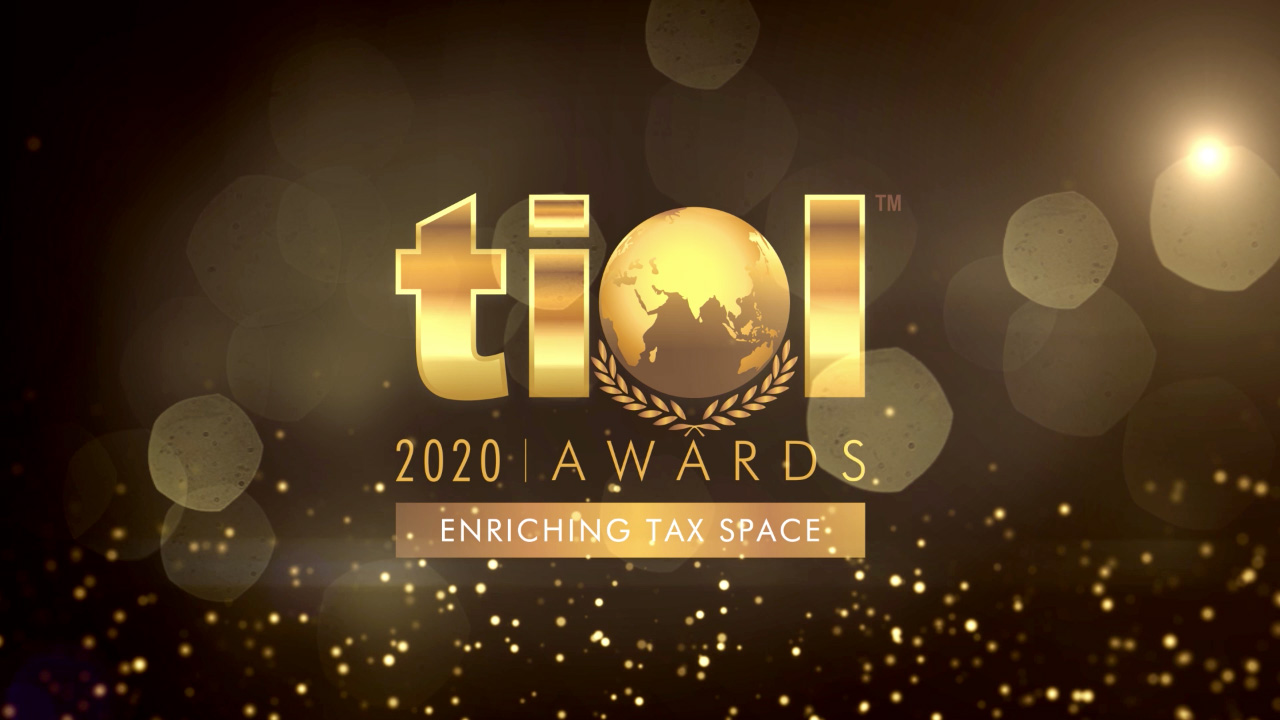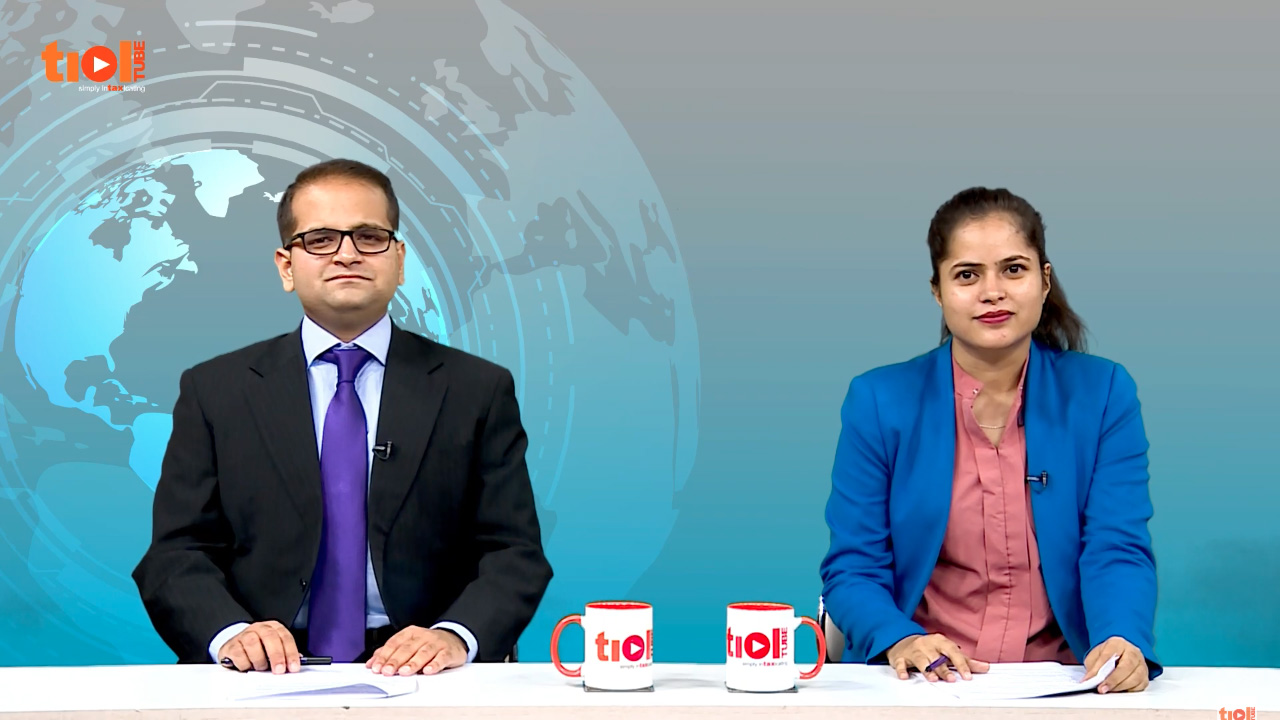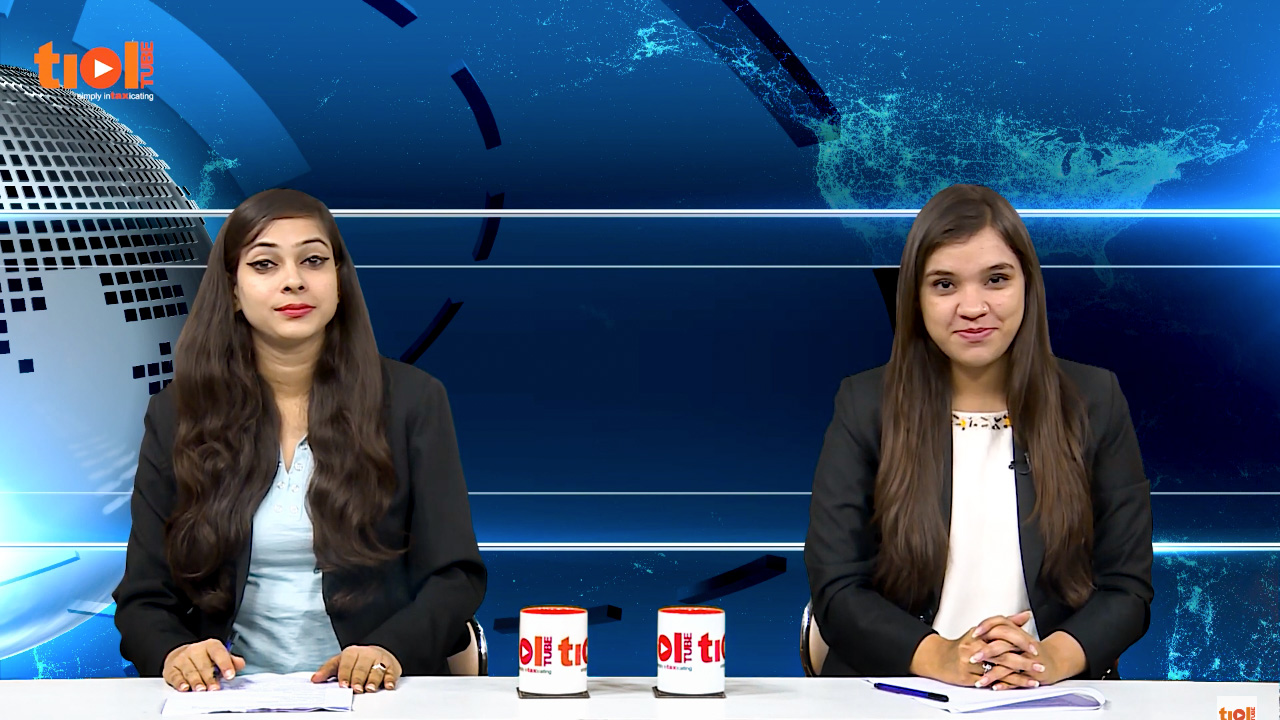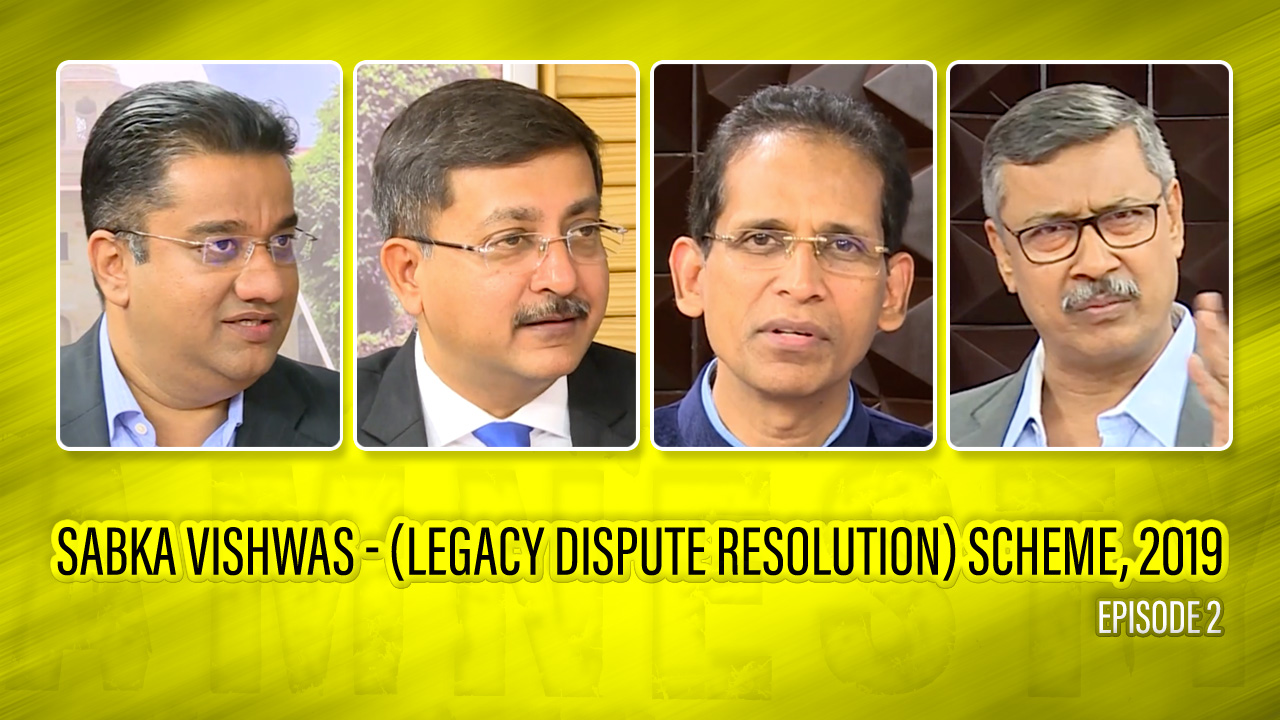SERVICE TAX
2019-TIOL-3355-CESTAT-CHD
Bharti Airtel Ltd Vs CCE & ST
ST - The assessee is in appeal against impugned order wherein the Cenvat credit has been denied on tower and shelters and credit on services used for erection of towers for providing telecommunication services - Both the issues have been decided by Tribunal in the case of Bharati Infratel Limited vide Final Order dt.22.5.2019 , wherein it is held that the assessee is entitled to avail cenvat credit on items, towers and shelter parts thereof being inputs used for providing output service - Therefore, relying on the said decision of Tribunl in assessee's own case, the impugned order is set aside and the credit availed by assesseee is allowed - In the case of Bharat Sanchar Nigam Limited , this Tribunal has allowed the credit for the services used for erection and installation of telecom towers - Accordingly, the impugned order deserves no merits and the same are set aside: CESTAT
- Appeals allowed: CHANDIGARH CESTAT
2019-TIOL-3354-CESTAT-ALL
Elentec Technologies Pvt Ltd Vs CCE
ST - The assessee procured services from their foreign sister concern and as per the law, they were required to discharge service tax obligation on reverse charge basis - On demand being raised against them, they took a categorical stands that they have not paid for the said services to the foreign service provider and only a provision to that effect stands made in their balance sheet - The period involved is from October, 2005 to March, 2008 and as per law, during the relevant period payment of service tax was required to be made only upon the actual payment of consideration for the services so received - However, w.e.f. 10/05/2008, an explanation was introduced in Rule 6 of STR, 1994 providing that even if any provision for payment have been made in books of account in respect of services received from business associates, it has to be treated as payment of consideration for the services - The said explanation was added w.e.f. 10/05/2008 and inasmuch as the period involved is prior to the said date, assessee's contention was that no service tax liability would arise against them, in the absence of actual payment made to foreign sister concern - On the other hand, Revenue was of the view that said explanation is explanatory in nature and hence is retrospective and the same would apply to the period prior to 10/05/2008 - On going through the SCN, it is found that the crux of the notice is only on interpretation of said explanation added to Rule 6 - The Tribunal has held that such rule would operate only prospectively and not retrospectively - The confirmation of demand by the authorities below on the sole ground that the assessee has made provision for payment in books of account, have rendered themselves liable to service tax, is unsustainable - Apart from that, demand relates to period October, 2005 to March, 2008 - Admittedly, during the said period, tax liability would arise against the assessee only if the payment have been made for the services so received by him - As such non-payment of service tax by assessee during the relevant period cannot be faulted upon and even according to Revenue, the liability stands created with the introduction of explanation in May, 2008 - The SCN stands issued on 20/04/2011 by invoking longer period of limitation - In the absence of any mala fide on the part of assessee for non-payment of duty during the relevant period, the invocation of longer period cannot be upheld: CESTAT
- Appeal allowed: ALLAHABAD CESTAT
CENTRAL EXCISE
2019-TIOL-3353-CESTAT-ALL
Advance Steel Tubes Ltd Vs CC, CE & ST
CX - The assessee is engaged in manufacture of Black & G.I. Pipes and parts of Transmission Tower - The assessee was also undertaking the process of hot dip galvanization of seamless tubes of steel on job work basis - The Revenue entertained a view that the assessee is required to pay duty of excise on galvanized pipes, inasmuch as galvanization amounts to manufacture in terms of the Chapter note 4 of Chapter 73 of CETA, 1985 - Accordingly, they were issued a SCN raising demand of duty - Prior to the introduction of Chapter 4, process of galvanization was held as non manufacture process by the Supreme Court - The process which does not amount to manufacture attracts service tax on the job work activity - The assessee was admittedly paying service tax on the said process and were reversing the credit of Zinc and Furnace Oil, which facts was being reflected by them in the ER-1 Returns - The Appellate Authority has observed that the payment of service tax instead of excise duty was an act of deception on the part of assessee, thus justifying the invocation of longer period - No merits found in the stand of the Revenue - When admittedly the assessee was paying service tax and was reflecting said payment in the returns filed by them and was also reversing the Cenvat credit, Tribunal really fail to understand as to how such an act of assessee was with a mala fide mind to evade payment of duty of excise - The Tribunal in the case of M/s K. R. Packaging has dealt with an identical issue and has held that where the activity amounted to manufacture and was required to pay duty of excise but the assessee paid the service tax and regularly filed the service tax returns without any objection by the Revenue, the demand of duty of excise would not be sustainable - The entire facts were being brought to the notice of the Revenue and all the figures were being reflected in the assessee's account books - In fact the Revenue has picked up the figures from assessee's records only - In such a case, no mala fide can be attributed to the assessee so as to invoke the longer period - To the same effect is the Tribunal's decision in case of Gayatrishakti Paper & Boards Ltd. and a latest decision of this Bench in the case of B. N. Pack - The demand of duty is not sustainable as the same is barred by limitation: CESTAT
- Appeals allowed: ALLAHABAD CESTAT
2019-TIOL-3352-CESTAT-AHM
At And Post-Atul Vs CCE & ST
CX - The assessee-company manufactures chemical dies and availed cenvat credit of duty paid on inputs and capital goods used in the manufacture of finished goods during the relevant period - Later, audit objection was raised that certain amount in respect of inputs were written off in the balance sheet - SCN was issued proposing to recover the credit attributed to value written off inputs in light of Circular No. 645/36/2005-CX - The adjudicating authority confirmed the demand invoking the Circular wherein it was prescribed that if the value of inputs or capital goods is written off in the balance sheet, the credit on such inputs/capital goods should be reversed - Hence the present appeal against such an order.
Held - The moot question to be decided is that during the relevant period when the assessee have written off partial value of the inputs and accounted for in the balance sheet whether the assessee is required to reverse the amount of Cenvat credit in respect of inputs of which the value was written off - The main reliance of the Department for raising demand of Cenvat credit is the Board Circular No 101/12/1995-CX and Circular No 645/36/2005-CX - The High Court in the case of Ingersoll Rand (India) Ltd held that on the basis of both Circulars, the demand cannot be raised in absence of any statutory provision for the reversal of credit in case of written off value of inputs - Moreover, inputs on which value was written off was lying in the factory as the Revenue has not proved contrary that either the goods are not available or the same was disposed of otherwise - Even though the inputs got obsolete, but, since the same is lying in the factory, Cenvat credit cannot be denied - Besides, the amended provision of Rule 3(5B) of CCR provides that in case of partial written off value of the inputs, the reversal of Cenvat credit is required, such provision came into effect from 01.03.2011 - Therefore, prior to this date there was no statutory provision for reversal of credit in case partial value of the inputs is written off - Therefore, during the relevant period, there is no statutory provision for reversal of credit in case the value of the inputs is written off - At a later stage if the cost of inputs was written off and it is not used in manufacture and disposed of, the Revenue would be at liberty to initiate fresh action - Hence the O-i-O in challenge is set aside: CESTAT
- Assessee's appeal allowed: AHMEDABAD CESTAT
CUSTOMS
2019-TIOL-3351-CESTAT-DEL
Jtekt Sona Automotive India Ltd Vs CC
Cus - The assessee imported a consignment of Gear Reduction Blank from a supplier based in China - The assessee classified the goods under Tariff Item 8483 40 00 as Gears and Gearing other than toothed wheel, chain sprockets and other transmission elements presented separately - The classification adopted by the assessee did not find favor with the appraising group, which proposed to re-classify the goods under Tariff Item 8708 94 00 - The assessee agreed to pay the differential duty under protest - On adjudication, the classification adopted by the assessee was rejected and the goods were re-classified under Tariff Item 8708 94 00 of the Customs Tariff Act - On appeal, the Commr.(A) upheld the O-i-O - Hence the present appeal.
HELD - The Tribunal in Commissioner of Central Excise, Chennai vs. Best Cast Pvt. Ltd. decided upon the classification of gear box part and clutch, wherein it was held that the proper classification of these items would be under Heading 8483 and not under Heading 8708 as part of motor vehicles - Such order of the Tribunal was later sustained by the Apex Court and so attained finality - Moreover, in the case of Eimco Elecon (India) Pvt Ltd. vs Commissioner of C. EX., Vadodara it was held that the pinion manufactured as component of air motor is rightly classified under Heading 8443 of CEA as against Heading 7226, 8607, 8708 of 8714 of CETA - Moreover, in Commissioner of Central Excise Rohtak vs. Khalifa Forge Limited it was held that the transmission shaft and parts thereof are classifiable under Heading 8443 of CEA and not under Chapter 87 as part of motor vehicle - In light of such precedent cases, there is no reason to classify the goods under Heading 8708 as part of motor vehicles - The parts which were imported were part of column type electric power steering system (CEPS) and not part of motor vehicle so as to be classifiable under Chapter 8708 of Customs Tariff - Hence the O-i-A merits being set aside: CESTAT
- Assessee's appeal allowed: DELHI CESTAT








